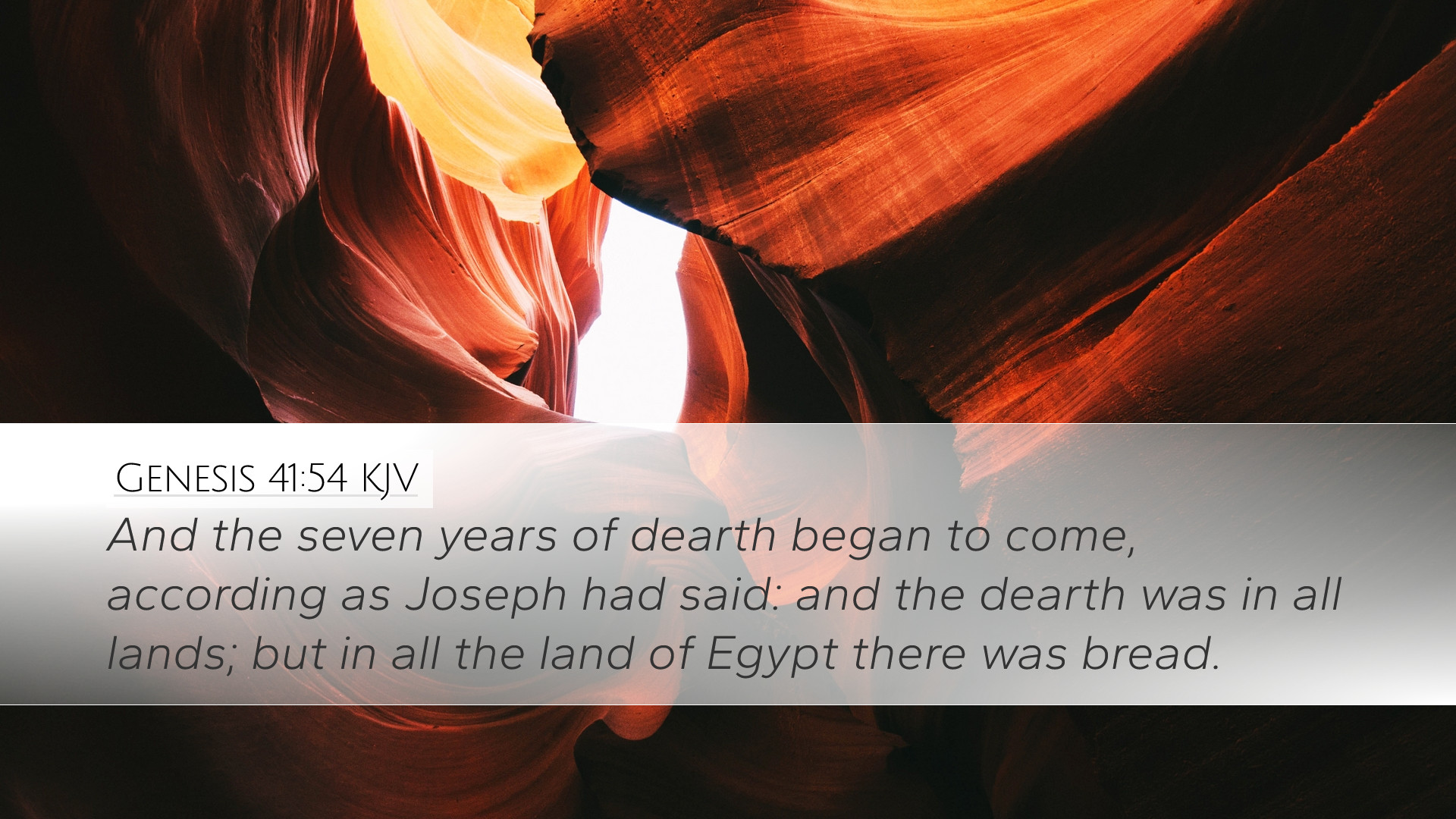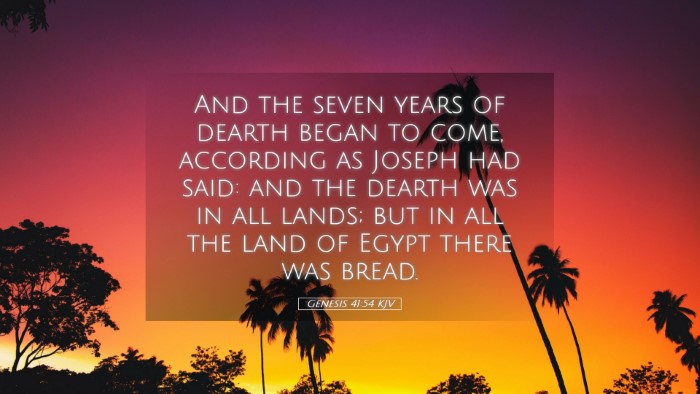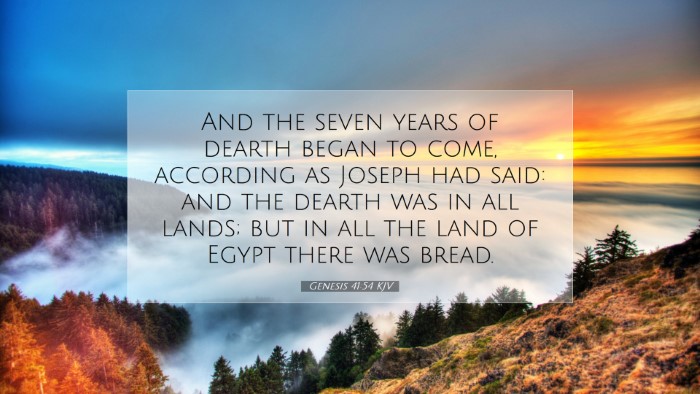Commentary on Genesis 41:54
Verse Context: In Genesis 41:54, we find ourselves at a pivotal moment in the narrative of Joseph's rise to power in Egypt. The verse states, "And the seven years of famine began to come, according as Joseph had said: and the famine was in all lands; but in all the land of Egypt there was bread." This verse serves to highlight God’s providence and Joseph's wisdom, as well as the dire situation facing the surrounding nations.
Overview of the Famine
The famine referred to in this verse is the result of God's prophetic revelation to Joseph, following the interpretation of Pharaoh's dreams (Genesis 41:30-31). The period of plenty was to be followed by a time of scarcity, and Joseph's foresight provided Egypt with the opportunity to prepare.
Insights from Matthew Henry
Matthew Henry emphasizes God's sovereignty and the fulfillment of His word through Joseph. Henry notes that the famine did not occur suddenly; rather, it was a predictable outcome of the prior years of abundance. He advocates for the interpretation of these events as not merely historical occurrences but as lessons in divine providence.
- Divine Providence: Henry argues that the famine demonstrates God's control over the natural world and His ability to guide events to fulfill His purposes.
- Preparation and Wisdom: According to Henry, Joseph’s preparation during the years of plenty underscores the wisdom in planning and resource management.
Insights from Albert Barnes
Albert Barnes affirms Joseph's foresight as a divine gift that allows him to navigate challenges effectively. He points out that the famine was not localized but widespread, thus amplifying the severity of the crisis.
- The Scope of the Famine: Barnes notes that the famine affected all lands, illustrating the universal nature of hardship and the interconnectedness of nations.
- Egypt's Abundance: In contrast, Barnes highlights that Egypt's preparation led to food availability, signifying a series of divine blessings bestowed upon Joseph for his faithfulness and diligence.
Insights from Adam Clarke
Adam Clarke provides additional depth by exploring the implications of this famine in the larger narrative arc of Genesis and its theological significance.
- Theological Significance: Clarke suggests that this famine serves as a manifestation of God's mercy toward Joseph and, ultimately, His covenant people despite the surrounding adversity.
- Symbolism of Bread: Clarke also draws attention to the significance of bread as a symbol of life and sustenance, connecting it to later biblical themes of spiritual nourishment.
Practical Applications
This verse and its surrounding context offer several practical applications for pastors, students, theologians, and scholars:
- Faith in Adversity: Believers are encouraged to trust in God's provision during difficult times, much like the Egyptians who turned to Joseph when famine struck.
- Importance of Wisdom: The narrative underscores the need for wisdom in planning and stewardship of resources, an essential aspect of Christian living.
- God’s Sovereignty: Reflecting on God’s control over events affirms the assurance that God works through circumstances for the ultimate good of His people.
Conclusion
Genesis 41:54 encapsulates a critical moment in the biblical narrative, showcasing divine providence through Joseph's leadership amid famine. The insights from various commentators like Matthew Henry, Albert Barnes, and Adam Clarke highlight the theological depth of this episode, emphasizing God's control, the importance of preparation, and the hope that sustenance brings. This is a profound reminder for all believers to remain faithful and wise in the face of life’s challenges.


